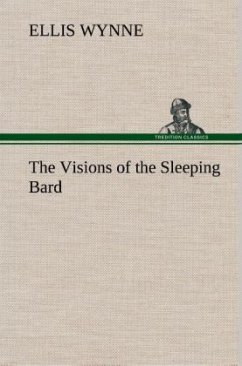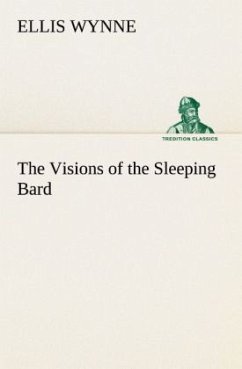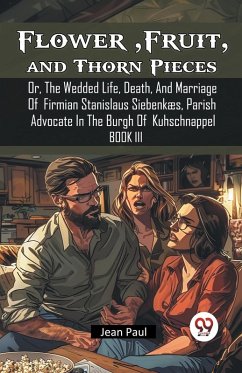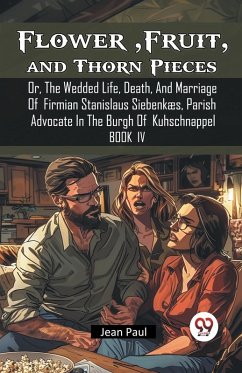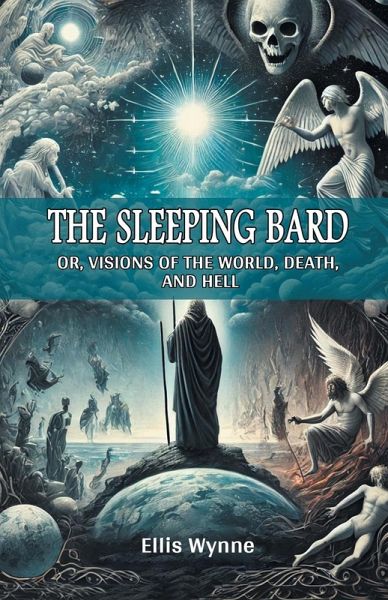
The Sleeping Bard Or, Visions of the World, Death, and Hell
Versandkostenfrei!
Versandfertig in 1-2 Wochen
12,99 €
inkl. MwSt.

PAYBACK Punkte
6 °P sammeln!
The Sleeping Bard: Or, Visions of the World, Death, and Hell by Ellis Wynne is a seminal work of allegorical literature from the 18th century. The book presents a visionary narrative that explores themes of morality, death, and the afterlife through a spiritual journey. Wynne's satirical approach critiques human nature and religious concepts, vividly depicting the contrasts between good and evil. The story unfolds as a dream-like sequence, where the protagonist experiences visions of hell and the world's moral failings, offering a profound commentary on Christian symbolism and judgment. Writte...
The Sleeping Bard: Or, Visions of the World, Death, and Hell by Ellis Wynne is a seminal work of allegorical literature from the 18th century. The book presents a visionary narrative that explores themes of morality, death, and the afterlife through a spiritual journey. Wynne's satirical approach critiques human nature and religious concepts, vividly depicting the contrasts between good and evil. The story unfolds as a dream-like sequence, where the protagonist experiences visions of hell and the world's moral failings, offering a profound commentary on Christian symbolism and judgment. Written in Welsh, the book reflects its cultural and religious context, contributing to the Welsh literary tradition. The allegory serves both as a moral critique and a reflection on the nature of existence and the afterlife, making it a significant piece in the study of religious and philosophical literature.




